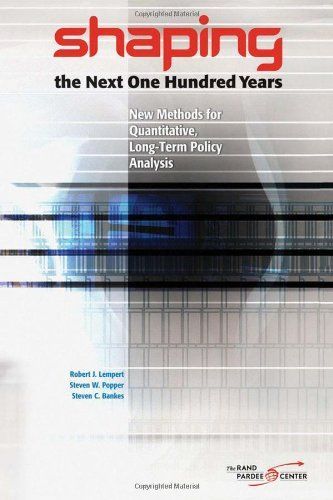
Shaping the Next One Hundred Years New Methods for Quantitative, Long-Term Policy Analysis
A sophisticated reader ought to view with great skepticism the prospect of answering questions about the long-term future. The checkered history of predicting the future-from the famous declarations that humans would never fly to the Limits to Growth study to claims about the "New Economy"-has dissuaded policymakers from considering the effects of their decisions more than a few months or years ahead. However, today's choices will significantly influence the course of the twenty-first century. New analytic methods, enabled by modern computers, may transform our ability to reason systematically about the long term. This report reviews traditional methods of grappling with the morrow, from narratives to scenario analysis, which fail to address the multiplicity of plausible long-term futures. The authors demonstrate a quantitative approach to long-term policy analysis (LTPA). Robust decision methods enable decisionmakers to examine a vast range of plausible futures and design near-term, often adaptive, strategies to be robust across them. Reframing the question "What will the long-term future bring?" as "How can we choose actions today that will be consistent with our long-term interests?" these methods provide powerful analytic support to humans' innate capacity for "what-if-ing." Choosing the challenge of sustainable development as an example, the authors discuss how these methods may be applied to real-world LTPA and a wide range of other challenges of decisionmaking under conditions of deep uncertainty.